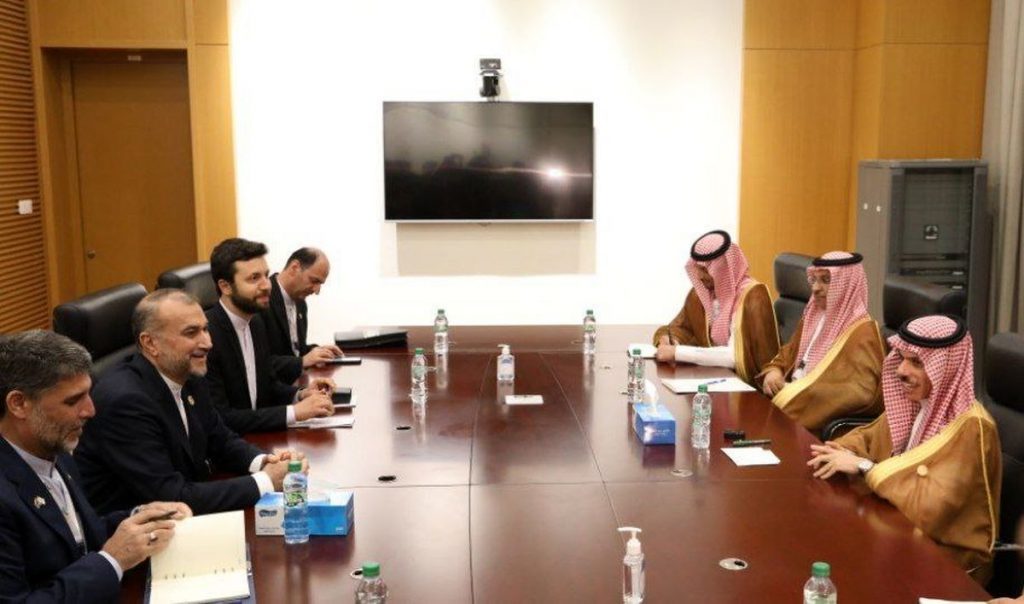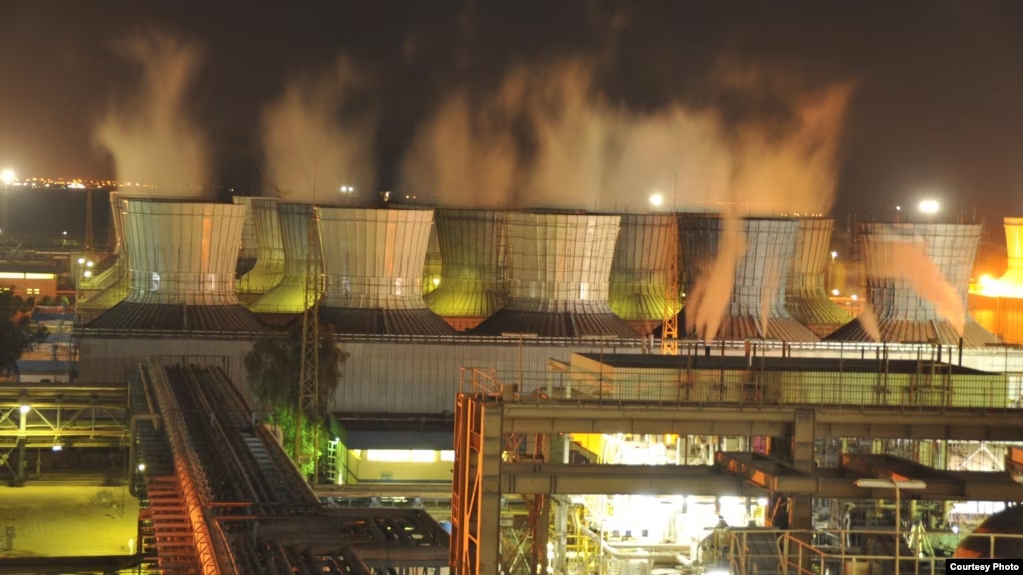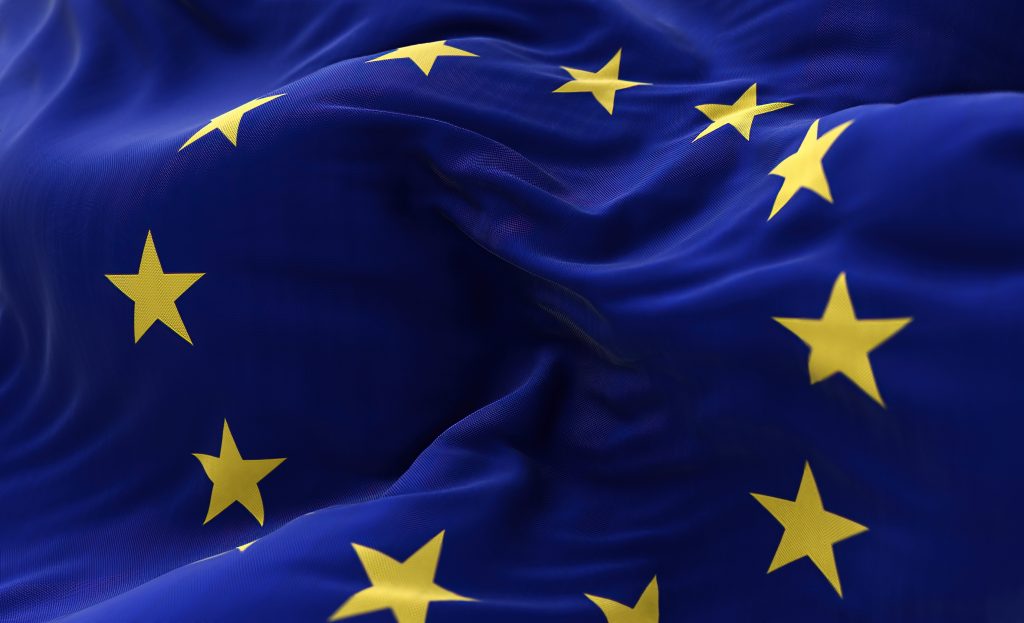
Give Freedom to the People
In a recent editorial in Hamdeli Daily, Mohammad Javad Pahlavan, a lawyer and university professor, draws attention to the significance of a prominent US television presenter’s image and residence. The editorial emphasizes that alignment with certain hidden agendas often becomes apparent, regardless of outward appearances. Pahlavan notes that discussions about attire, such as the neck veil, distract from more pressing issues, suggesting that on significant occasions like voting days and marches, priorities shift.
The editorial further highlights the complexity of sentiments toward the United States, acknowledging it as both an enemy and, for some, a second or even primary homeland. The writer questions the ease with which individuals residing in enemy territory can attain influential positions, contrasting their experiences with those who were forcibly displaced from Tehran.
While recognizing individuals’ freedom to choose their residence and attire, Pahlavan urges respect for the diverse perspectives among ordinary citizens, cautioning against hypocrisy. He underscores the value of authenticity in contrast to perceived insincerity.
It is Now Necessary to Establish Private Polling Institutions
In a recent editorial published by Jahan-e Sanat newspaper, the focus is on delving into the depths of Iranian citizens’ thoughts and concerns. The editorial raises a series of probing questions: what are Iranians thinking about? What issues matter most to them? How do they perceive their governing institutions? These questions, while fundamental to understanding the societal landscape, are unfortunately shrouded in a lack of accurate, timely and up-to-date information, leaving citizens in a state of confusion and uncertainty.
The bitter reality portrayed in the editorial is that domestic politics in Iran is meticulously orchestrated to keep citizens in the dark about crucial matters. Governing institutions, it suggests, deliberately withhold information from the public under the guise of maintaining equilibrium. This deliberate opacity stands in stark contrast to strong economic-political countries in the West, where private polling institutes provide real-time insights into societal trends and attitudes. In Iran, however, the absence of such institutions is glaring, leaving a significant information void.
The editorial contends that if information were readily available in an up-to-date manner, it would pave the way for transparency and reveal blind spots within the Iranian societal fabric. Despite assertions by governing institutions that Iranian citizens are the “best people on Earth,” the reality on the ground paints a different picture. Citing Mostafa Moin, a retired professor of Tehran University and former minister of science, the editorial highlights the alarming findings of a “survey of values and attitudes of Iranians.” According to Moin, the survey revealed a staggering 81% distrust among Iranians at a general level – a troubling indication of societal fragmentation.
This pervasive lack of trust, the editorial argues, has far-reaching implications. It leads to a drastic drop in productivity, undermines social cohesion, and erodes national solidarity – all critical components of a stable society. Moreover, national authority, it posits, hinges on solidarity among citizens. Another alarming revelation from the survey is the lack of trust in the media, with approximately 60%-70% of Iranians expressing distrust in radio, television, and other media outlets. Similarly, there is widespread distrust in governing institutions, with confidence levels plummeting by 60%-70%.
The editorial raises thought-provoking questions about the acceptance of these findings by governing bodies. If these levels of distrust are indeed accurate, it begs the question: under what conditions can society be effectively governed? The editorial suggests that the establishment of polling institutions could help address these pressing issues by providing accurate data and fostering transparency. Polling institutions, it argues, would allow for a better understanding of societal attitudes and concerns, paving the way for informed decision-making and effective governance. The editorial sheds light on the critical need for transparency and accountability in Iranian society. By addressing the pervasive lack of trust and providing avenues for citizen engagement, Iran can strive toward a more inclusive and responsive governance framework. The establishment of polling institutions would represent a significant step toward bridging the information gap and building trust between citizens and governing institutions. Only through open dialogue and collaboration can Iran navigate its way toward a more prosperous and harmonious future.
The Underdevelopment Crisis in Iran
An editorial in Pishkhan newspaper by Amirhossein Khaleghi, a seasoned political economy researcher, delves into Iran’s pressing infrastructure challenges. Khaleghi casts a spotlight on the indispensable need for infrastructure, particularly focusing on the critical shortage of electricity and gas, which has plagued industrial sectors like the Jat steel factories in recent days. The scarcity of essential energy resources underscores the pervasive impact of sanctions on Iran’s infrastructure.
The editorial discusses how these sanctions-induced shortages have led to recurring electricity deficits during scorching summers and gas inadequacies in freezing winters. However, he highlights a glaring gap in the available data, as no precise figures exist to quantify the direct and indirect effects of sanctions on Iran’s energy infrastructure.
Additionally, the editorial paints a grim picture from a political economy perspective, asserting that the current predicament offers little room for resolution. Under the weight of sanctions, Iran finds itself ensnared in a state of perpetual crisis, where administrative red tape further exacerbates the situation. Consequently, Khaleghi identifies the embargo as the most formidable obstacle hindering Iran’s economic advancement.
Drawing parallels with Cuba’s experience under prolonged sanctions, the editorial underscores the stagnation and hardship wrought by economic isolation. Despite geographical disparities, he argues that Iran faces similar constraints, albeit with a potential advantage in leveraging geopolitical rivalries, such as the US-China competition, to mitigate the impact of sanctions.
However, Khaleghi cautions against misplaced optimism, emphasizing that sustainable development hinges on certainty and stability. In a climate of uncertainty perpetuated by sanctions, investors are compelled to adopt short-term strategies, undermining long-term economic growth prospects.
Moreover, Khaleghi warns against the perils of denialism, highlighting the detrimental effects of refusing to acknowledge economic realities. He stresses the urgent need for policies that prioritize investment certainty to counteract the downward spiral of economic decline and forestall a looming descent into poverty.
Ultimately, Khaleghi’s analysis underscores the urgency of addressing Iran’s infrastructure challenges in the face of punitive sanctions. While geopolitical dynamics may offer fleeting opportunities, sustained development remains contingent upon lifting sanctions to foster an environment conducive to long-term investment and economic prosperity.
The editorial serves as a clarion call for policymakers to confront the harsh realities of Iran’s economic predicament and chart a course toward sustainable development through sanctions relief and investment certainty.
Shame on You
In a recent Khabar Online editorial, Seyed Hadi Burhani sheds light on the troubling remarks made by Mr. Bankipour, a representative of the Islamic Consultative Assembly, regarding the Turkish people. Bankipour’s derogatory comments, alleging that every Turkish man has an average of 15 sexual partners, have ignited a firestorm of outrage and concern over the potential repercussions on Iran-Turkey relations.
Burhani begins by emphasizing the gravity of Bankipour’s statements, which not only lack any substantiated evidence but also constitute a blatant act of slander against an entire nation. He underscores the severity of such slander from both a religious and political standpoint, stressing that such baseless accusations can have far-reaching consequences beyond mere offense.
The editorial highlights the absence of any official source or credible statistics to support Bankipour’s claims, casting doubt on the validity of his assertions. Burhani condemns Bankipour’s irresponsible behavior, particularly considering his official position as a member of the Islamic Consultative Assembly, which imbues his words with a weight that extends beyond personal opinion.
Moreover, the editorial warns of the potential ramifications of Bankipour’s remarks on the delicate fabric of Iran-Turkey relations. He notes that such inflammatory rhetoric has the potential to strain the historic ties between the two nations, threatening to unravel the bonds of Islamic brotherhood that have long united them.
Contrary to Bankipour’s misguided portrayal, the editorial offers a nuanced perspective on the Turkish people, highlighting their rich Islamic heritage and deep-rooted commitment to upholding Islamic values. He refutes Bankipour’s crude generalizations, emphasizing that the actions of a few individuals do not reflect the character of an entire nation.
It underscores the importance of fostering mutual respect and understanding between Iran and Turkey, especially in light of shared cultural and religious ties. He calls on Bankipour to retract his offensive remarks and issue a formal apology to the Turkish people, urging him to take responsibility for the damage caused by his reckless words.
Furthermore, the editorial emphasizes the broader implications of Bankipour’s statements on the broader Islamic community, particularly at a time when unity and solidarity are needed most. He warns against the dangers of sowing discord and division among Muslim nations, stressing the importance of standing united against common threats and challenges.
The editorial calls for greater accountability and responsibility among public officials, urging them to exercise caution and restraint in their public statements. He emphasizes the need for constructive dialogue and engagement, rather than inflammatory rhetoric, to promote harmony and understanding among nations. By acknowledging the gravity of Bankipour’s remarks and advocating for reconciliation, Burhani offers a path forward toward healing and reconciliation in Iran-Turkey relations.

Iran and Saudi Arabia Agree on Facilitating the Issuance of Business Visas and Establishing Direct Flights Between the Two Countries

During a diplomatic meeting at the Organization of Islamic Cooperation summit in Banjul, Gambia, Iranian Foreign Minister Hossein Amir-Abdollahian and Saudi Foreign Minister Faisal bin Farhan discussed enhancing bilateral relations. They emphasized the positive trajectory of their countries’ relations and highlighted the significance of economic and commercial cooperation. Specifically, they agreed to streamline the process for business visas and to establish direct flights between their countries.
Abdollahian reiterated Iran’s stance on retaliating against the Zionist regime following the attack on its embassy in Damascus. He affirmed Iran’s support for agreements that safeguard Palestinian rights and stressed the Palestinians’ right to determine the fate of Palestine. Additionally, he expressed skepticism about US promises in the region, citing historical precedent.
Prince Faisal welcomed the ongoing dialogue between their countries and emphasized the importance of deepening economic, cultural, and people-to-people ties. He highlighted the positive impact of resuming Hajj and Umrah pilgrimages on bilateral relations. He also reiterated Saudi Arabia’s commitment to Palestinian rights and its efforts to achieve a ceasefire in Gaza.
Both ministers underscored the necessity of continued dialogue to counter regional instability and Netanyahu’s aggressive policies. Prince Faisal condemned the Israeli attack on the Iranian embassy in Damascus, emphasizing that such actions are unacceptable.
Iran Incurs a 90-billion Toman Debt to Private Electricity Companies

The syndicate of electricity producing companies has disclosed that the Ministry of Energy owes private power plants a staggering 90 trillion tomans by the end of 1402 HS. Shahram Sadra, a member of the board, emphasized the severe repercussions of this debt, stating that it not only hampers routine operations but also impedes essential maintenance tasks. While the government has not officially confirmed these figures, Mohammad Reza Pour Ebrahimi had previously cited the debt as 28 trillion tomans in 1400 HS. This substantial increase indicates a significant financial burden under President Raisi’s leadership.
The burgeoning debt has created challenges in repaying loans to the National Development Fund, especially since many of these loans were issued in foreign currency. Seyed Alireza Banihashmi, the director of monitoring and collection of claims at the National Development Fund, labeled power plant owners as “super debtors,” highlighting that the outstanding claims from 46 plants amount to $1.5 billion. Despite efforts to recover these debts, only $173 million was collected last year, a mere fraction of the total outstanding amount.
The mounting debt, coupled with the obligation to repay loans in foreign currency, has deterred new investments in power projects, further exacerbating Iran’s electricity production growth. Mustafa Rajabi Mashhadi, CEO of Tawanir, warned of a potential deficit of 10,000 to 11,000 megawatts this year, despite efforts to mitigate shortages. He hinted at undisclosed measures aimed at minimizing disruptions and encouraged public participation in energy conservation efforts.
Iran’s energy sector, once a net exporter of electricity, has witnessed a significant shift, with its foreign trade balance in the energy sector now at equilibrium. This marks a stark departure from previous years when Iran boasted a net export of 8 terawatt hours annually until the mid-2000s. However, since the middle of the last decade, Iran has struggled to maintain a balance between its electricity production and consumption. While electricity consumption continues to grow steadily at 5% annually, the growth rate of production lags behind, exacerbating the country’s energy deficit.
The persistent energy deficit underscores the urgent need for comprehensive measures to address Iran’s electricity challenges. Addressing the mounting debt owed to private power plants and streamlining repayment processes is crucial for restoring stability and encouraging investment in the sector. Additionally, efforts to enhance domestic electricity production capacity and promote energy efficiency initiatives are imperative to alleviate the strain on Iran’s energy infrastructure and ensure a reliable power supply for its citizens.
30% Growth in Trade Between Iran and the European Union; Italy’s Imports From Iran Doubled

Trade between Iran and the European Union (EU) surged in the second month of the year, with Germany experiencing a notable increase in exports to Iran, up by 46%, and Italy witnessing a substantial rise of 96% in imports from Iran.
According to data from the European Statistics Center (Eurostat) reported by IRNA, trade between Iran and the 27 EU members amounted to 847 million euros in the first two months of the current year. This represents an 8% increase compared to the same period last year, which saw trade totaling 780 million euros.
EU imports from Iran during the initial two months of 2024 rose by 3% compared to the corresponding period in the previous year, reaching 144 million euros. Concurrently, EU exports to Iran surged by 9% to 703 million euros during January and February this year.
In February 2024 alone, trade between Iran and Europe spiked by 30%, soaring from 358 million euros in February 2023 to 468 million euros. European exports to Iran during this period saw a robust increase of 32%, reaching 392 million euros, while German exports alone surged by 46% to 141 million euros. France and Italy also experienced notable fluctuations, with France witnessing a 37% increase in exports to Iran and Italy experiencing a 6% decline.
Interestingly, Romania’s exports to Iran saw a remarkable 22-fold increase compared to the same period last year, soaring from 2.5 million euros in February 2023 to 57 million euros in February 2024.
Moreover, EU imports from Iran in February 2024 amounted to 76 million euros, marking a 24% growth compared to the previous year. Italy’s imports from Iran doubled, reaching 26.1 million euros, while Spain’s imports surged by 66% to 9.3 million euros. Despite a steady figure for German imports from Iran, Italy’s substantial increase underscores the evolving dynamics of trade relations between Iran and the EU.
Iran Imposes Sanctions on British, US Entities, Individuals

In line with the enforcement of the law “Combating Hostile Actions of the Zionist Regime Against Peace and Security,” Iran’s Ministry of Foreign Affairs has imposed sanctions on several British institutions and individuals for their support of the Zionist regime’s activities.
According to ILNA, the Ministry of Foreign Affairs of Iran, in compliance with the aforementioned law ratified by the Islamic Council, has sanctioned various British entities and persons for their deliberate assistance to the Zionist regime. These actions include supporting terrorist activities, violating human rights, using prohibited weapons against civilians, enforcing human blockade, displacing Palestinians, establishing illegal settlements, and continuing the occupation of Palestinian territory.
Among the sanctioned institutions are:
- Akrotiri Air Base of the Kingdom of Great Britain in Cyprus
- Diamond ship of the British Navy in the Red Sea
- British Elbit System Company
- Meggit Parker British company
- British Raphael Company
Additionally, several individuals have been sanctioned, including:
- Grant Shapps, UK Minister of Defense
- James Hackenhall, Commander of the British Army’s Strategic Command
- Sharon Nesmith, Deputy General Staff of the Armed Forces
- Paul Raymond Griffiths, Assistant to the General Staff of the Armed Forces
- Adrian Bird, Director of Defense Intelligence, UK Ministry of Defense
- Richard Camp, commander of the British Navy’s Richmond in the Red Sea
- Simon Clack, Commander of the British Akrotiri Air Base in Cyprus
- Peter Evans, commander of the British Navy’s Diamond in the Red Sea
Iran condemns the British government’s support and facilitation of these destructive actions, including aiding terrorist acts by the Zionist regime, as a violation of international obligations and principles of international law outlined in the United Nations Charter.
As a consequence, Iran will implement sanctions such as visa bans, entry prohibitions, freezing of bank accounts, and confiscation of property and assets within its jurisdiction. These sanctions will be executed in accordance with established procedures.
It should be noted that while these sanctions are being imposed, individuals involved in criminal activities will still face legal prosecution in the relevant courts. Iran holds the British government responsible for supporting terrorism and violating human rights through its actions.
In a related context, the Ministry of Foreign Affairs of Iran released a statement announcing sanctions against several US individuals and entities implicated in terrorist activities and grave human rights violations. These sanctions target those accused of aiding and abetting the Zionist regime’s brutal actions against Palestinians, particularly in Gaza.
According to reports, the ministry invoked the law Combatting Human Rights Violations and Adventurous and Terrorist Actions of the United States of America in the Region, particularly focusing on Articles 4 and 5. The sanctioned entities include prominent US corporations and individuals allegedly involved in supporting the Israeli regime during conflicts in Gaza and in the suppression of Palestinian rights.
Among the entities targeted are Lockheed Martin Corporation and General Dynamics Corporation for providing military equipment and ammunition to Israel during the Gaza war. Skydio Company and Chevron Corporation also face sanctions for their alleged involvement in supplying drones and cooperating with Israel in exploiting natural resources during military operations.
In addition to corporations, several individuals have been sanctioned, including former US President Donald Trump’s senior advisor Jason Greenblatt and Michael Rubin from the American Enterprise Institute. These individuals are accused of advocating for aggressive measures against Palestinian groups and supporting actions detrimental to human rights in the Gaza Strip.
Others on the list include Jason Brodsky, executive director of the United Against Nuclear Iran group, Clifford May, president of the Foundation for Defense of Democracies, and General Bryan Fenton, commander of the US Army’s special operations forces. Brad Cooper, commander of the Fifth Fleet of the US Navy, and Greg Hayes, CEO of RTX Arms Company, are also among those targeted by the sanctions.
Iran asserts that these measures are in line with its international obligations regarding human rights and counterterrorism efforts, particularly in combating what it perceives as state terrorism perpetrated by the United States. The sanctions include measures such as visa restrictions, asset freezes and banking restrictions, to be enforced by Iranian authorities.
These sanctions represent Iran’s response to what it views as complicity in the oppression of Palestinians and support for Israel’s actions in Gaza. The Ministry of Foreign Affairs affirms its commitment to holding accountable those it deems responsible for violations of international law and human rights abuses.
